 Petzlover
Petzlover Chantilly/Tiffany is originated from United States but European Burmese is originated from Myanmar. Both Chantilly/Tiffany and European Burmese are having almost same weight. Both Chantilly/Tiffany and European Burmese has almost same life span. Both Chantilly/Tiffany and European Burmese has same litter size. Both Chantilly/Tiffany and European Burmese requires Low Maintenance.
Chantilly/Tiffany is originated from United States but European Burmese is originated from Myanmar. Both Chantilly/Tiffany and European Burmese are having almost same weight. Both Chantilly/Tiffany and European Burmese has almost same life span. Both Chantilly/Tiffany and European Burmese has same litter size. Both Chantilly/Tiffany and European Burmese requires Low Maintenance.
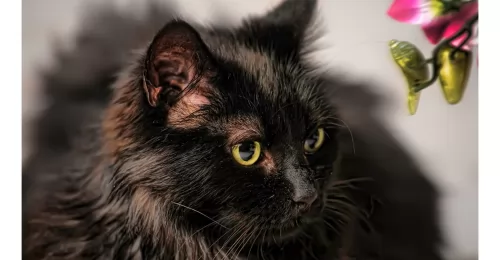 The beautiful Chantilly/Tiffany cat gets people thinking the cat is a semi-longhaired Burmese, but of course, it's not.
The beautiful Chantilly/Tiffany cat gets people thinking the cat is a semi-longhaired Burmese, but of course, it's not.
The way the Chantilly came about was that there were a pair of chocolate-colored cats but their origins were unknown. The first litter of Chantilly kittens was born in New York in 1969 and people were so taken up by the beautiful kittens that a breeding program was started.
The cat was first started as a foreign longhair and then it changed to Tiffany. In a British registry, a cat breed that was a cross between a Chinchilla Persian and a Burmese was named the Tiffanie and renamed Chantilly and referred to as the Chantilly/Tiffany.
The breed is recognized by most major cat registries.
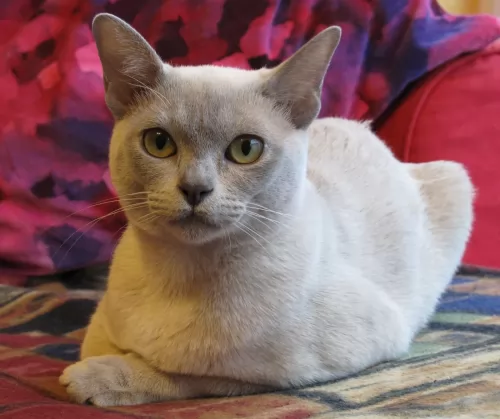 The European Burmese was developed in the 1960s when they were imported to England by British breeders.
The European Burmese was developed in the 1960s when they were imported to England by British breeders.
They were then crossed with red-point Siamese as well as British Shorthairs to expand the gene pool and number of coat colors.
In 1994, the cat was recognized by the Cat Fanciers Association and later by the Canadian Cat Association as well as the Cat Fanciers Federation and others as well.
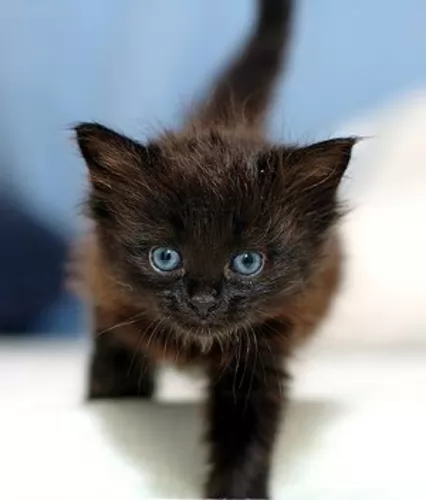 The cat has a fairly broad head with widely spaced ears of medium size. The eyes are oval-shaped and gold in color. The fur is semi-long and there is no undercoat. The tail is plumed.
The cat has a fairly broad head with widely spaced ears of medium size. The eyes are oval-shaped and gold in color. The fur is semi-long and there is no undercoat. The tail is plumed.
Apart from the original chocolate brown of the cat, other colors of the coat can include fawn, cinnamon, black, lilac and blue, with the chocolate brown being the favorite color.
The Chantilly promises to be a devoted and loyal feline companion for you, much preferring the company of his human family than to being alone.
It gets on well with other pets in the house as well as with respectful, gentle children. He isn't a demanding cat and he tries to talk with his family by chirping. It’s a balanced cat, with a fair share of docility and energy, making the cat an ideal companion for single people, couples, families, and elderly people.
It’s a cat that is so devoted, it will follow his human family around the house.
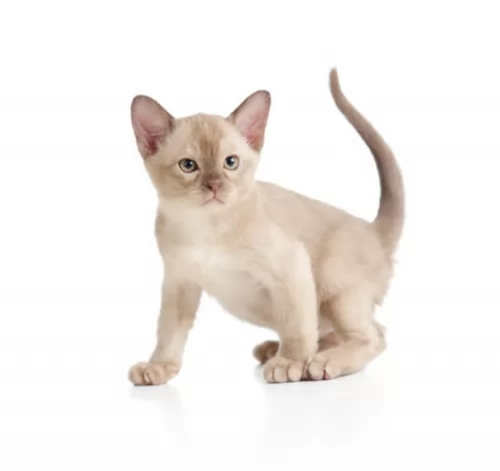 Your beautiful European Burmese cat is a small to medium-sized cat and both males and females will weigh between 3 and 5kg.
Your beautiful European Burmese cat is a small to medium-sized cat and both males and females will weigh between 3 and 5kg.
The cat’s coat is short and glossy and it comes in a number of different colors such as white, brown, cream, blue, red and tortoisehell.The cat has large, expressive eyes that are a yellow or amber shade.
Your European Burmese has a silky short coat and the coat will also only need to be brushed once a week to keep it in tip-top condition.
The European Burmese is a very affectionate, loyal ad intelligent cat, loving the companionhip they share with their human family.
They’re a great pet for families as they’re active and playful. They are also a cat breed that likes to bond with one particular family member more than others.
They’re also inclined to be lap cats, grabbing each opportunity to be stroked and petted. They will also be quite willing to become friends with other pets in the home and don’t like to be left alone for a long time.
They like having other pets around to keep them company and can become withdrawn if constantly left on their own.
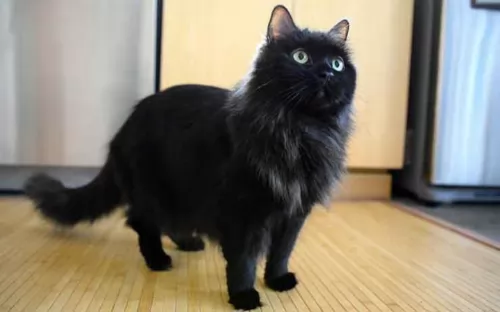 The Chantilly/Tiffany is a gentle and kind breed that is playful and easy-going. They are just your typical middle-of-the-road cats that are not too much or too little of anything.
The Chantilly/Tiffany is a gentle and kind breed that is playful and easy-going. They are just your typical middle-of-the-road cats that are not too much or too little of anything.
The Tiffany is playful, docile, happy and content and he wants to be your friend and companion.
If you are looking for a breed of cat that is loyal to its human family, allow this cat into your home... you won't have any regrets.
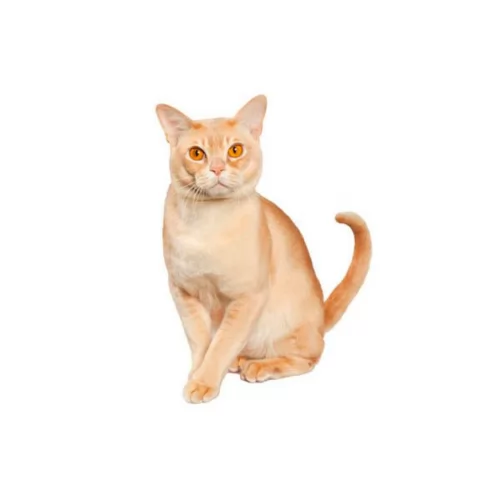 Your European Burmese has a sweet disposition and it is a loving, companionable cat. They enjoy the company of their human owners as well as other pets.
Your European Burmese has a sweet disposition and it is a loving, companionable cat. They enjoy the company of their human owners as well as other pets.
They can be quite vocal too and they don’t like being left alone. If you work all day, it will be a good idea to have another pet as a companion for the European Burmese.
The European Burmese loves to play and is a fun-loving, active, social cat. While they love their human family, they may not make the greatest pet for an inactive, single person as these cats actually seek out companionship.
A person unable to involve themselves with this cat, may well find it becoming depressed. These are cats that require a lot of interaction and attention, craving the attention of their human families.
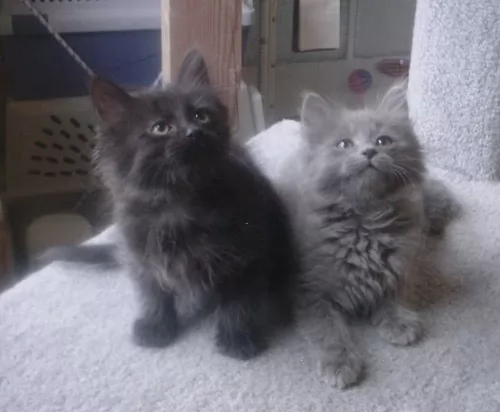 There is no health issue that the Tiffany is prone to. Like any cat, a healthy diet will keep the Tiffany healthy for years.
There is no health issue that the Tiffany is prone to. Like any cat, a healthy diet will keep the Tiffany healthy for years.
These cats are known to have delicate digestive systems so avoid foods with grain if possible. The Tiffany has full hair in their ears, and wax build-up can occur so the inside of his ears must be checked. Checking the ears once a week, as part of a regular routine that includes brushing, and tooth care, should be sufficient to keep the ear canals clear.
Other issues, which are not detrimental but should be kept in mind, are reports that the Tiffany has delicate digestion. This cat relies on a regular diet that doesn't chop and change often.
Because the Tiffany is a low-shedding cat, it is thought to be a popular breed with those people who are allergic to cat hair.
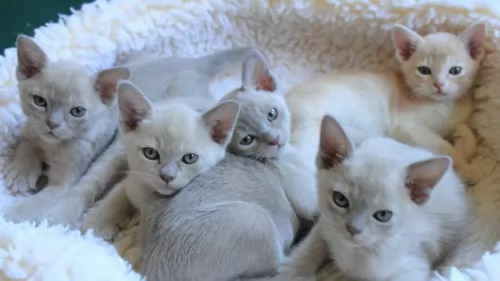 The European Burmese is a fairly healthy cat and is unlikely to cost you a lot in terms of vets fees.
The European Burmese is a fairly healthy cat and is unlikely to cost you a lot in terms of vets fees.
Just like with other cats, some of the common cat illnesses include developing diabetes mellitus. There have been some of these cats that ave been known to suffer from Feline Orofacial Pain Syndrome (FOPS).
It is a disease related to the teeth. Teeth problems are a common ailment with cats. With this particular problem, there is an unusual amount of pain when the cat's adult teeth begin to emerge. Your cat will be displaying a lot of licking and chewing motions. The symptoms do however go away once the adult teeth come in.
The cat will in all likelihood need to see the vet for pain medication and other treatments such as a potassium supplement.
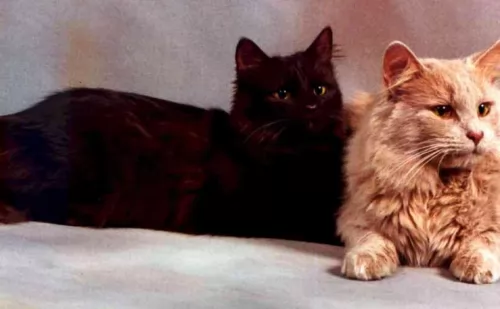 The Chantilly needs an excellet diet and exercise to ensure he doesn’t become to overweght. Remember that cats are carnivores, and this means they have nutritional requirements that can only be met with meat – they can never do well on a diet high in carbohydrates and will develop digestive problems. Your cat will also require clean, fresh water aroud thd clock to ensure his good health.
The Chantilly needs an excellet diet and exercise to ensure he doesn’t become to overweght. Remember that cats are carnivores, and this means they have nutritional requirements that can only be met with meat – they can never do well on a diet high in carbohydrates and will develop digestive problems. Your cat will also require clean, fresh water aroud thd clock to ensure his good health.
Ensure each cat you have has a litter box andencourae good litter box habits by cleaning th litter box every day. Keeping the litter box clean also alerts you anything unusual with your cat’s toilet habits.
Provide your cat with a scratching post and a climbing tree.
The cat doesn’t have an undercoat and is therefore easy to groom. With his semi-long hair, you can brush him once a week to keep the coat soft and shiny. The coat is also low shedding.
Check inside his ears and inside his mouth to ensure there is no redness and signs of infection.
Schedule regular vet visits for your cat for his cat vaccines and for when he is sick.
Spay or neuter your cat to prevent unwanted kittens. Spaying and neutering prevents uterine infections and certain cancers in the felines.
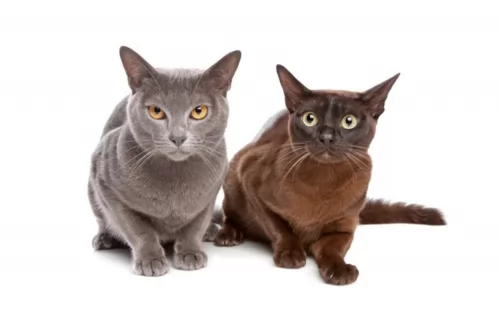 Because the European Burmese is a very affectionate, loyal cat, and because they thrive on the companionship of their human family, you owe it to him to provide him with consistent companionship. They are friendly cats and will be amicable to visitors to the home too.
Because the European Burmese is a very affectionate, loyal cat, and because they thrive on the companionship of their human family, you owe it to him to provide him with consistent companionship. They are friendly cats and will be amicable to visitors to the home too.
Scratching is a natural behavior of pets so instead of becoming angry with your cat when he scratches on your furniture, provide him with a scratching post.
You can also learn how to carefully clip your cat's nails, otherwise a professional cat groomer can do it for you.
It’s not always easy keeping a cat indoors and that is why neutering or spaying becomes important to avoid unwanted kittens. It makes your European Burmese a more balanced cat and it has a host of health benefits too.
It can’t be stressed enough how important good food is for the health of people and animals. The European Burmese needs top quality food high in proteins and meat to remain healthy.
If you feed your cat human food or food high in carbs, expect to spend a lot on vet fees.
Make sure your pet enjoys his food but that it is also nutritious and in the right portions to avoid obesity.
Kittens will eat 4 bowls of food a day and then progress to 2 bowls of food after the cat turns one year of age.